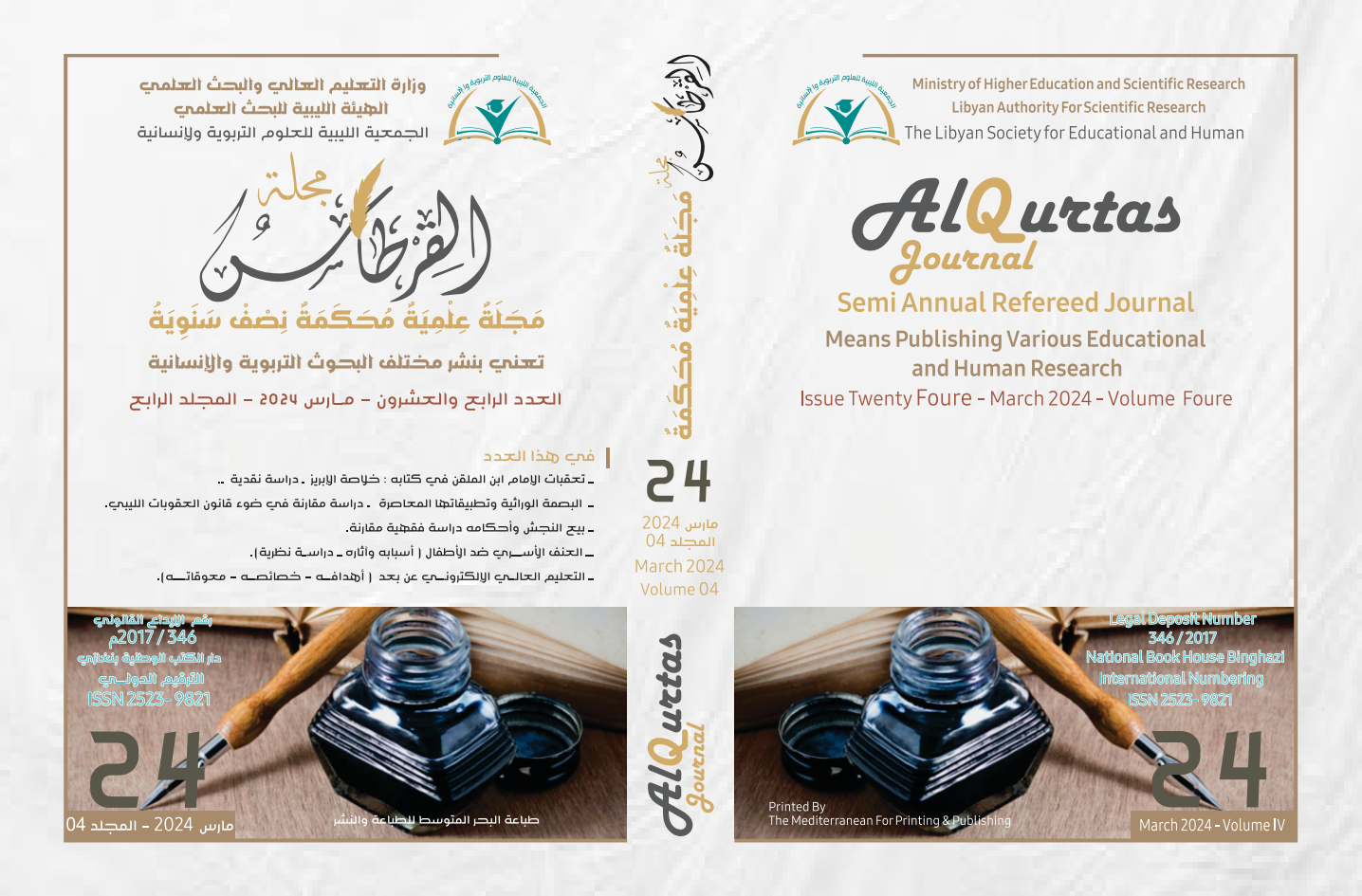ثورات الربيع العربي ومستقبل العلاقات العربية البينية
Main Article Content
Abstract
The study aimed to understand the Arab Spring revolutions and the future of interArab relations. This was achieved by examining the role of the theory of creative chaos in dismantling Arab regimes, as well as the negative local outcomes of the Arab Spring revolutions, their adverse effect on Arab-Arab relations, and finally, the impact of the Arab Spring revolutions on the Arab-Zionist conflict. A descriptive approach was adopted as it suited the subject of the study. The study yielded the following results: The theory of creative chaos played a role in encouraging significant and unexpected political changes in the Arab world, leading in some cases to instability and the reshaping of political systems. The local negative outcomes of the Arab Spring revolutions included political chaos, economic downturns, increased unemployment and poverty rates, and a decline in public services such as education and health. The negative impact of the Arab Spring revolutions on Arab-Arab relations includes the exacerbation of regional divisions and tensions, and competition for influence among different Arab states. The Arab Spring revolutions affected the Arab-Zionist conflict by shifting priorities in some Arab countries and reevaluating their relations with Israel, leading to a regional decline in focus on the Palestinian issue.

